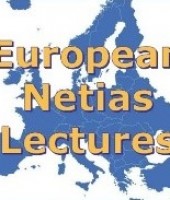What is a Boundary Good For? A Reconsideration through the Muslim-Jewish Musical Question in Algeria
Webconference by Jonathan Glasser, 2019-2020 Paris IAS Fellow, as part of a series of conferences organized by the European Netias network on the theme of Borders
The boundary has long been a key metaphor for analysts of social difference. For nearly half a century, the metaphor has been particularly important in the anthropological study of ethnicity, where thinking about the ethnic boundary as locus of action and negotiation came to displace a concern with the content alleged to reside on either side of the boundary. Drawing on my current research on Muslim-Jewish relationships around music in Algeria and in France, this talk explores one theoretical implication of this move: that boundaries are about the intertwining of connection and differentiation. I show that while Algerian Jewish participation in Arabic-language music has often been held up as something that breaks through, transcends, or brings into question the notion of a Muslim-Jewish boundary, close attention to the archival and ethnographic record shows music to be eminently susceptible to a reading through the boundary metaphor. Once conceived in such terms, however, the Algerian musical case opens up certain other questions about the nature of social boundaries. I propose that an extensive reworking of the boundary metaphor might help us renew the case for conceiving difference as a form of relationship.
No inscription required
Zoom link :https://unibo.zoom.us/j/97956190113
Complet program of the series : https://ias.ceu.edu/article/2020-05-28/european-netias-lecture-series-borders
Review the web conference of Jonathan Glasser, 2019-2020 Paris IAS Fellow :
|
|
|
Muslim-Jewish Musical Intimacy in Algeria and France 01 September 2019 - 30 June 2020 |
|
|


